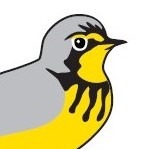Blog / eNews
Timiskaming First Nation and Birds Canada: A Relationship Taking Flight
Collaborations with Timiskaming First Nation and other Indigenous Nations and groups across Canada give us so many clear examples of how Indigenous leadership and collaborative knowledge can come together to protect birds, habitats, and biodiversity for generations to come.
Identifying Canada’s Top Marsh Birds (With Sounds)
Think all marsh birds are the same? Think again. From bitterns that sway like reeds to grebes with submarine skills, these quirky wetland birds are full of surprises. Hear their calls, learn where to find them, and meet the most unique voices in Canada’s wetlands.
Looking back: 30 years of MMP science
Grab a cuppa and enjoy the science and stories behind 30 years of wetland conservation in the Great Lakes with this deep dive (wade) into the Marsh Monitoring Program’s evolution, achievements, and impact.
Northern Melodies: Autonomous Recording Units and Avian Monitoring
Step into the soundscape of northern forests where bird songs captured by remote recorders are filling data gaps, supporting programs like the Breeding Bird Atlas and the Marsh Monitoring Program. Hear how technology is changing the way we understand and protect birds.
Creating Bird-Friendly Communities: World Migratory Bird Day 2025
This World Migratory Bird Day, discover the actions that can help birds on their epic journeys. Your yard or balcony could be a lifeline for migrating birds.
Celebrating Inaugural Birds Canada Community Grant Recipients for 2025
Meet the seven incredible recipients of Birds Canada’s first-ever Community Grants! From Arctic Snow Buntings to accessible birding events, these projects will drive real change across Canada. Funded by Birdathon, powered by community—discover how your support is taking flight.







